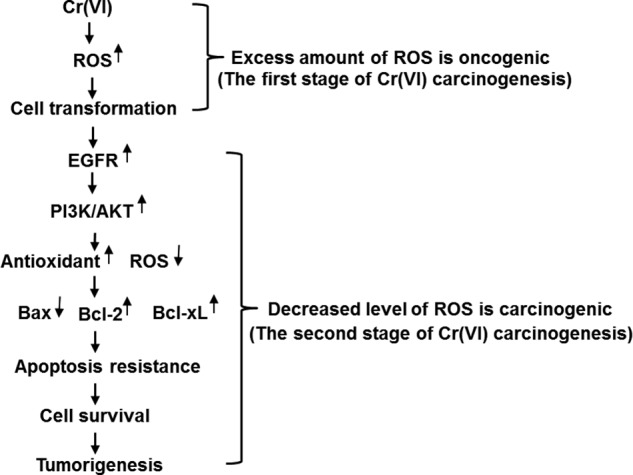FIGURE 7.

The role of ROS in Cr(VI) carcinogenesis. Our previous study has demonstrated that chronic exposure of cells to Cr(VI) causes ROS generation which is responsible for malignant cell transformation. Thus, at the first stage of Cr(VI)-carcinogenesis (cell transformation), excess amount of ROS is oncogenic. The present study has found that Cr(VI)-transformed cells exhibit activated EGFR, reduced ROS generation, elevated antioxidant expression, leading to apoptosis resistance and therefore tumorigenesis. At the second stage of Cr(VI)-carcinogenesis (after cell transformation), decreased level of ROS is carcinogenic.
